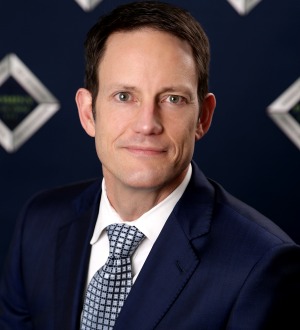As a New York City attorney, I have spent my career structuring my clients’ estate plans and encouraging families to work together to advocate for their loved ones as they age. Seemingly without warning, I found myself in the same position as many of my clients’ adult children, doing my best to balance the responsibilities of a parent, partner, and advocate for aging loved ones while simultaneously managing my career and the accompanying billable hours.
As my family expanded, so did my responsibilities. I found myself in the unique position of not only being a working parent but also becoming the primary caregiver and advocate for my childless uncle locally while offering long-distance support to my aging father 1,000 miles away.
This new role placed me squarely within the 23% of Americans classified as being part of the "Sandwich Generation," those who find themselves simultaneously caring for both children and aging relatives. The mental, physical, and logistical demands of this balancing act have been significant.
As attorneys, we already face long hours, tight deadlines, and the mental fatigue of managing complex legal cases and clients. The added responsibility of caregiving—whether for children, aging parents, ailing relatives, or even a spouse—amplifies these challenges.
Despite the challenges we face, there is hope, and there are practical strategies for navigating these obstacles, some of which involve legal documents that can provide the authority and the framework to overcome the challenges.
By combining my personal insights with professional expertise, I hope to offer some practical guidance for managing this balancing act of being stuck in the middle of the Sandwich Generation.
Mental and Emotional Strain
As attorneys, we are trained to be sharp, focused, and able to manage multiple clients and cases simultaneously. However, the added burden of caregiving, whether physical or emotional, can make it incredibly difficult to maintain that same level of professional focus.
Caring for my uncle, who had no children and relied heavily on me, while an honor, was, candidly, an added set of responsibilities to my day. In addition to staffing and coordinating his care, I handled his finances, legal matters, and personal needs. These responsibilities demanded that I balance the delicate task of being an advocate and niece, while still managing my professional obligations and the existing responsibilities I had as a mother and spouse.
Similarly, my father’s needs, although less immediate and physical in nature, required long-distance support, including managing legal, medical and emotional issues from afar. There were telephone conversations rife with guilt for what I could not do and the pressure of traveling out of state, away from my children, spouse, and job, to offer in-person support when I could find the time.
On any given day, my “to-do list” included different tasks related to my role as a lawyer, spouse, daughter, niece and parent. Between calls to doctors, conversations with home care aids, and emails to the math teacher, I was pulled in a dozen different directions. This divided and frankly, scattered attention often leads to burnout, anxiety, and feelings of guilt—either for not doing enough for your family or for not dedicating more time to your work. I know I was not alone in this struggle; many women face the constant balancing act of professional expectations and familial duties, resulting in significant emotional strain and fatigue.
Physical Exhaustion and Time Management
The physical toll of being in the Sandwich Generation is profound, particularly for women in high-pressure legal careers.
Another key difficulty I faced was managing the finite resource of time. As attorneys, our work is usually complex and always time-sensitive, often without the luxury of flexible hours. Yet, as a caregiver, I found myself trying to meet both the professional and personal demands of my life, leading to physical exhaustion; there was simply not enough time in the day. When certain tasks had to be completed – whether professional or within my caregiving role, the first thing to go was sleep.
Eventually, I learned that a lack of sleep and the constant feeling of being "on the clock" can have a lasting impact on both mental health and physical well-being. The exhaustion that comes with juggling caregiving responsibilities and professional obligations can lead to increased vulnerability to stress, burnout and even illness.
Financial and Career Impact
There are significant financial and career-related consequences for women attorneys in the Sandwich Generation. We find ourselves in the “sandwich” in the middle of our lives, often when our careers are robust, established, and incredibly fulfilling. We are quite literally at the top of our game, and the professional goals that we set forth to accomplish are often being met or within reach; at the exact same time, we are needed in ways that our now-aging loved ones did not require just a few years before. The timing is ironic and, in many circumstances, unfortunate.
The added costs of caregiving, whether for medical expenses, specialized care, or even time away from work can strain family finances in unanticipated ways. This financial burden is compounded by the reality that caregiving often interferes with career advancement or leads to missed opportunities.
Many women in similar situations find themselves financially stretched. The lack of paid family leave for caregivers, combined with the need to care for aging relatives, forces women to choose between advancing their legal careers and providing the necessary support to family members. In many cases, this means a step back in their own career, just as it was all coming together.
The Secrets of Strategizing
Despite the many challenges, it is possible to navigate the complexities of the Sandwich Generation.
Over the years, I have developed strategies both from helping my clients and their families and through my own experiences.
These strategies have allowed me to manage my career and my caregiving responsibilities and even led me to produce a podcast for fellow Sandwich Generation members as a platform to share these resources.
Legal Documents
As an estate planning lawyer, I would be remiss, not to mention the essential legal documents that are instrumental in any Sandwich Generation survival plan.
Without the foundational legal documents to provide you with the proper authority to advocate, and sometimes to provide care, there is a not a strategy in the world that will help you overcome not having the legal authority to act.
Every Sandwich Generation member should have the following documents for their loved ones:
- Power of Attorney. The Power of Attorney (POA) is a document that appoints an agent to make financial decisions for another. In the context of the Sandwich Generation, the POA provides the authority to manage both banking basics like bill-paying and more robust elder care responsibilities like comprehensive tax, Medicaid, and long-term care planning. A POA is also imperative to assist your college-age child: at age 18, a parent can no longer handle their child’s finances.
- Health Care Directives. Sandwich Generation members need health care directives to advocate for loved ones who no longer have the capacity to advocate for themselves.
Some states, like New York, do have statutes that provide authority to family members to make decisions, but the government assigns an order of priority to particular family members to make those care decisions. As the niece of a gay man in New York, there were definitely family members who he would not want to speak for him in a vulnerable state, so the statute in our case was not helpful.
Likewise, if you are a parent to an 18-year-old+ child, they must also have a health care directive to ensure that their parent can speak with their doctors, access medical records, and advocate in health care setting, especially in the case of an emergency. Many parents assume that access to their child’s doctors or their medical records is automatic, and it is simply not the case. - Trusts. There are several types of trusts that allow those of us in the Sandwich Generation to effectively manage assets for aging loved ones. This is particularly helpful as we take on their financial, record-keeping, and asset management when they no longer have the capacity to manage their own assets.
Likewise, irrevocable trusts can be established to qualify for public benefits to pay for the cost of care through programs like Medicaid. An irrevocable trust can protect the aging loved one’s assets as well as the assets of the Sandwich Generation member, who would otherwise have to provide or pay for the care.
Time Management and Setting Boundaries
One of the most critical skills for managing a career and caregiving responsibilities is time management. Setting clear boundaries is essential for yourself and those around you. I quickly discovered saying “yes” to every request as, I once had done, rendered an immediate feeling of being overwhelmed.
I realized that it was imperative to say "no" and prioritize my time. Sometimes, this meant saying no to career related events that I knew were important, but not essential. Lessons were also learned by my children, who understood by example that we had to assist our aging loved ones, sometimes at what seemed to be a great personal expense.
A detailed schedule, allocating specific time blocks for work, caregiving, family time, and self-care can be game-changing. Sticking to that schedule and setting clear boundaries with clients, colleagues, and family members, allowed me to establish a balance to meet both professional and personal needs without compromising one for the other on most days.
Delegation and Outsourcing
As young attorneys, we learn that we cannot do all of the work ourselves and we must delegate. Whether by hiring outside help for my uncle’s care or by relying on support staff for administrative tasks in my practice, I knew that I could not physically do it all – and sometimes, I could not do it best. Learning to delegate tasks to those most suited to handle them, wherever possible, is imperative.
It is not only acceptable to outsource certain responsibilities, but it can also be transformative for you, your family, and your aging loved ones. For example, hiring a geriatric care manager for my uncle to manage his caregivers and doctors added time to my day so that I could handle my professional and family obligations while ensuring my uncle received the care he deserved. In turn, this gave me the ability to focus on my practice without the constant worry (and guilt!) that I was neglecting my caregiving duties.
Utilizing Technology
Technology can also be transformative as a Sandwich Generation caregiver: from camera technology to buzz caregivers into my uncle’s apartment, to medical appointment apps to schedule virtual check-ups. The use of video technology even allowed me to provide emotional support to my father despite the distance. Technology should not be overlooked as a tool to abate the time required for each task required as a Sandwich Generation caregiver.
Self-Care
Finally, I cannot stress enough the importance of self-care. As women with a genetic predisposition to provide the care, and as attorneys trained to provide the solutions, it is so easy to get caught up in the cycle of caregiving and professional obligations. Without taking time for oneself, burnout becomes inevitable.
Self-care also looks different for everyone; whether it is exercise, listening to a podcast, or going on a walk with a friend, an outlet is needed. Seeking professional counseling, hiring a professional time management coach, and joining caregiver support groups can also help manage the emotional strain of caregiving and “doing it all.”
Conclusion
Being part of the Sandwich Generation as a woman attorney is undeniably challenging. The pressures of balancing a legal career, caregiving responsibilities, and personal obligations can feel overwhelming because they are. However, by documenting your legal authority to act, taking a serious approach with effective time management and delegation, leveraging technology and prioritizing self-care, it is possible to navigate these challenges successfully.
Through The Sandwich Generation Survival Guide podcast, it is my hope that the resources, practical advice, and our collective experiences will help women in similar situations. No doubt, being a member of the Sandwich Generation, caregiving, and maintaining a successful legal career are demanding; there are always ways to find balance and thrive in both roles. By supporting one another and sharing our stories, we can navigate the complexities of the Sandwich Generation with success, efficiency, and resilience.
























